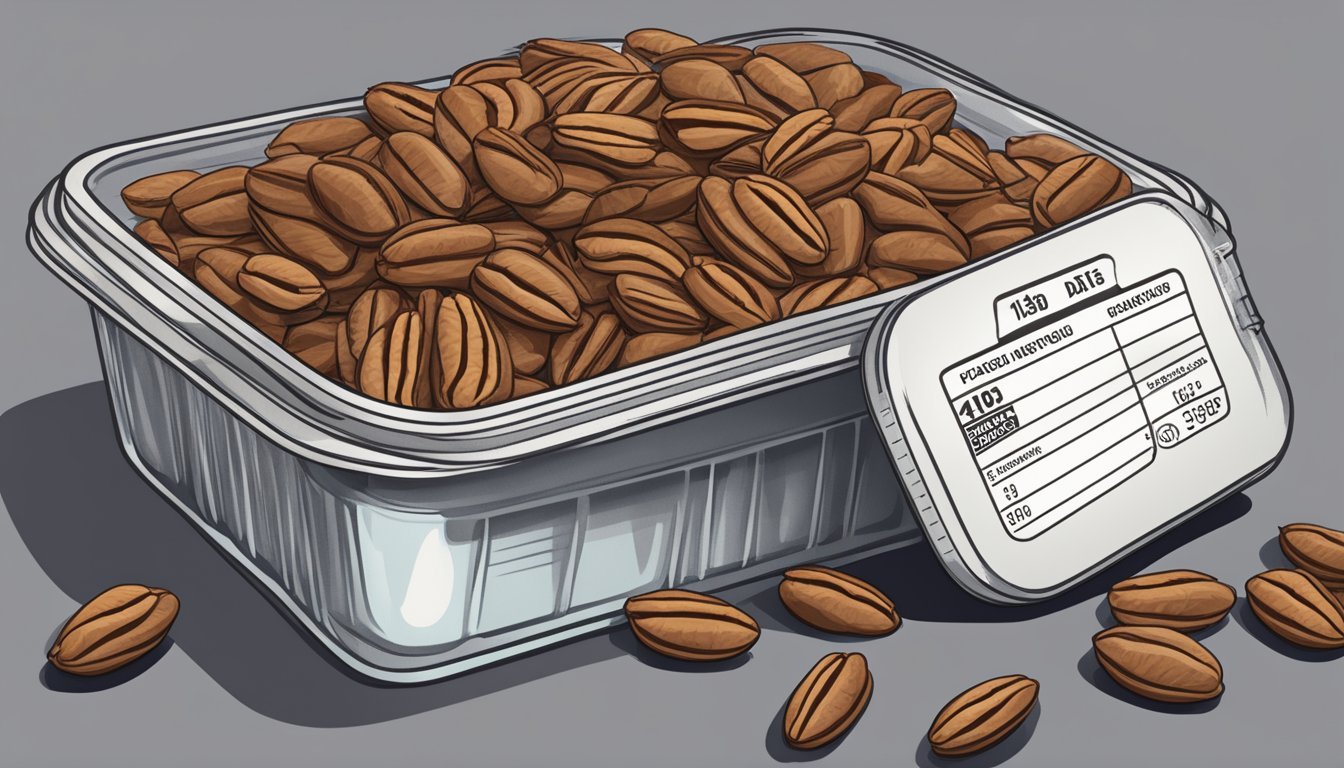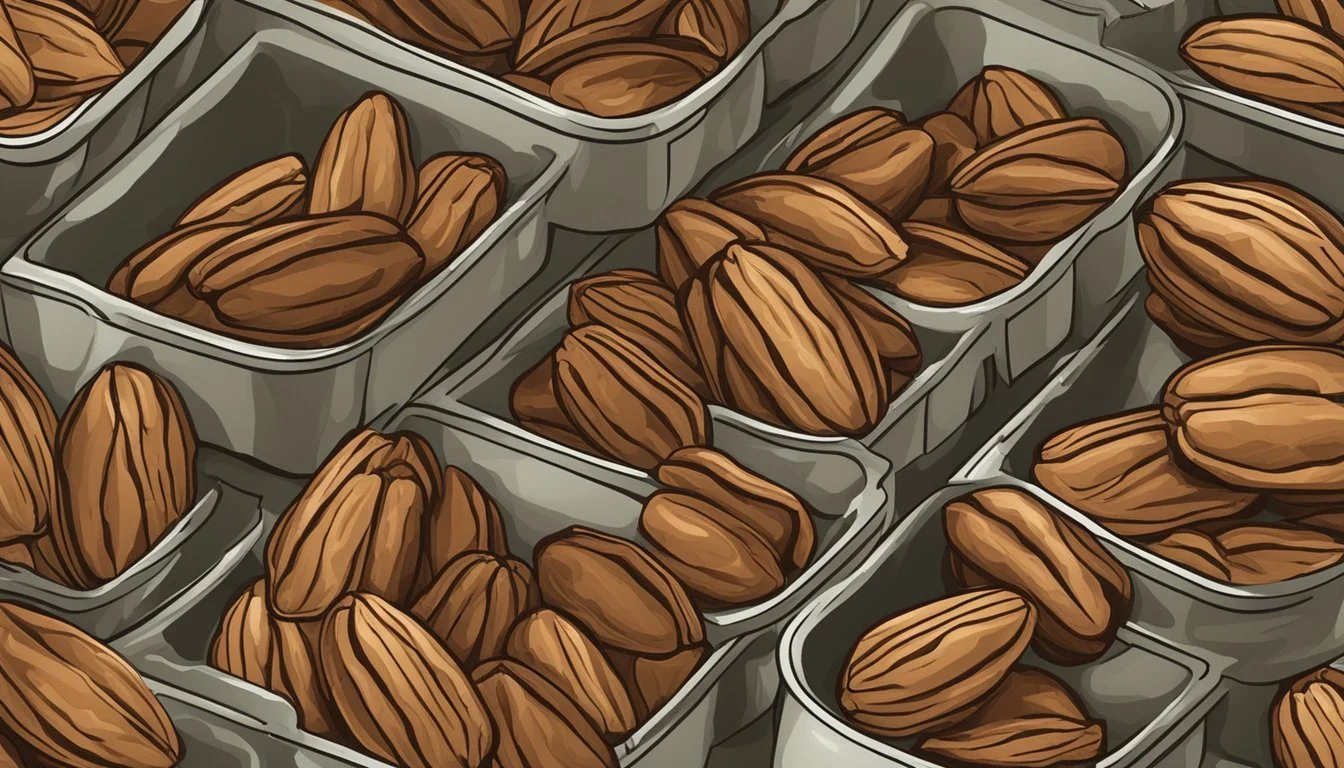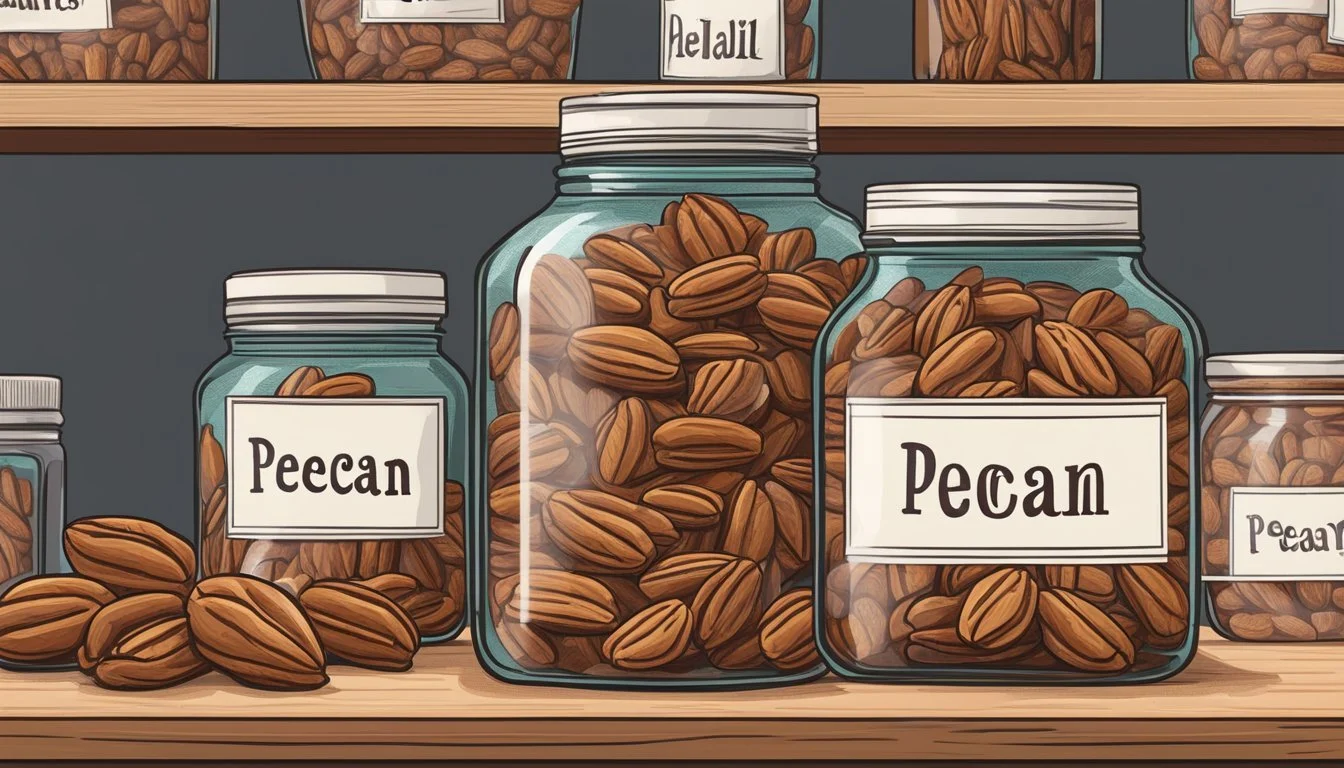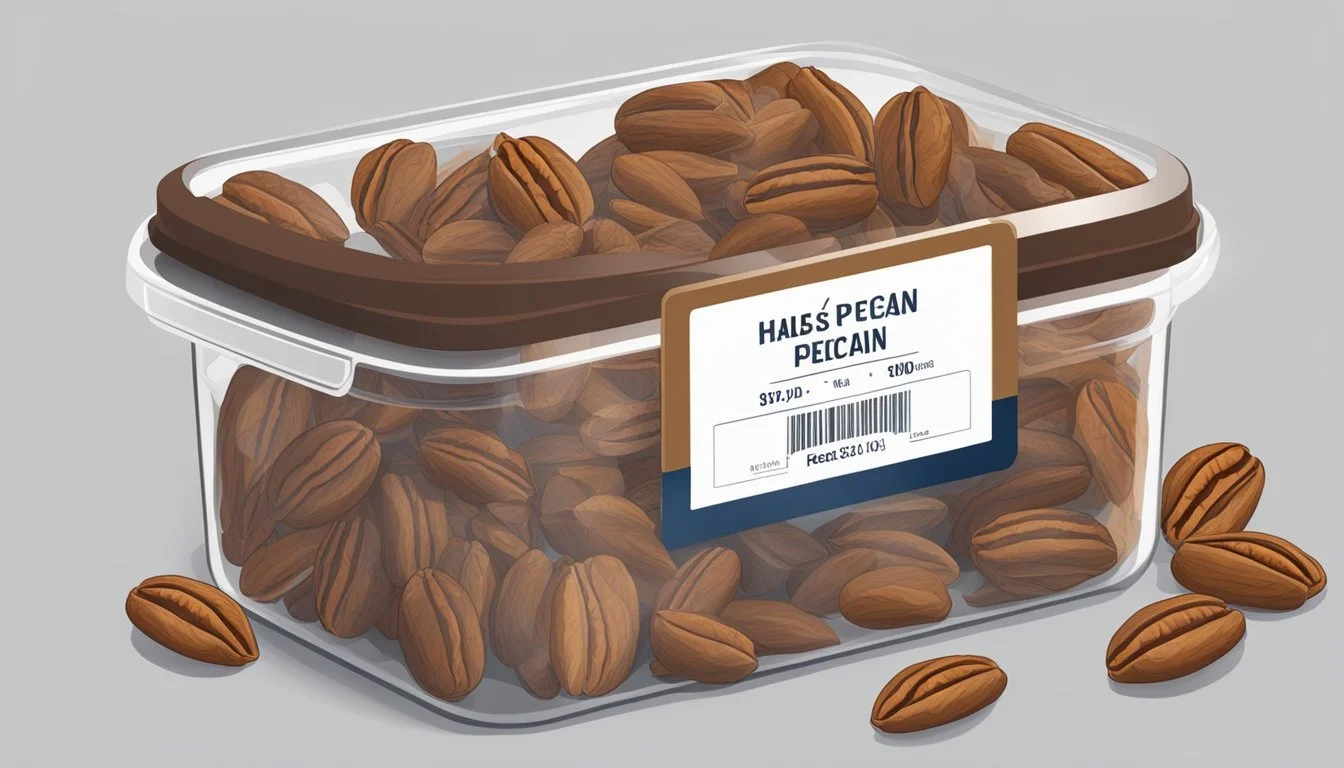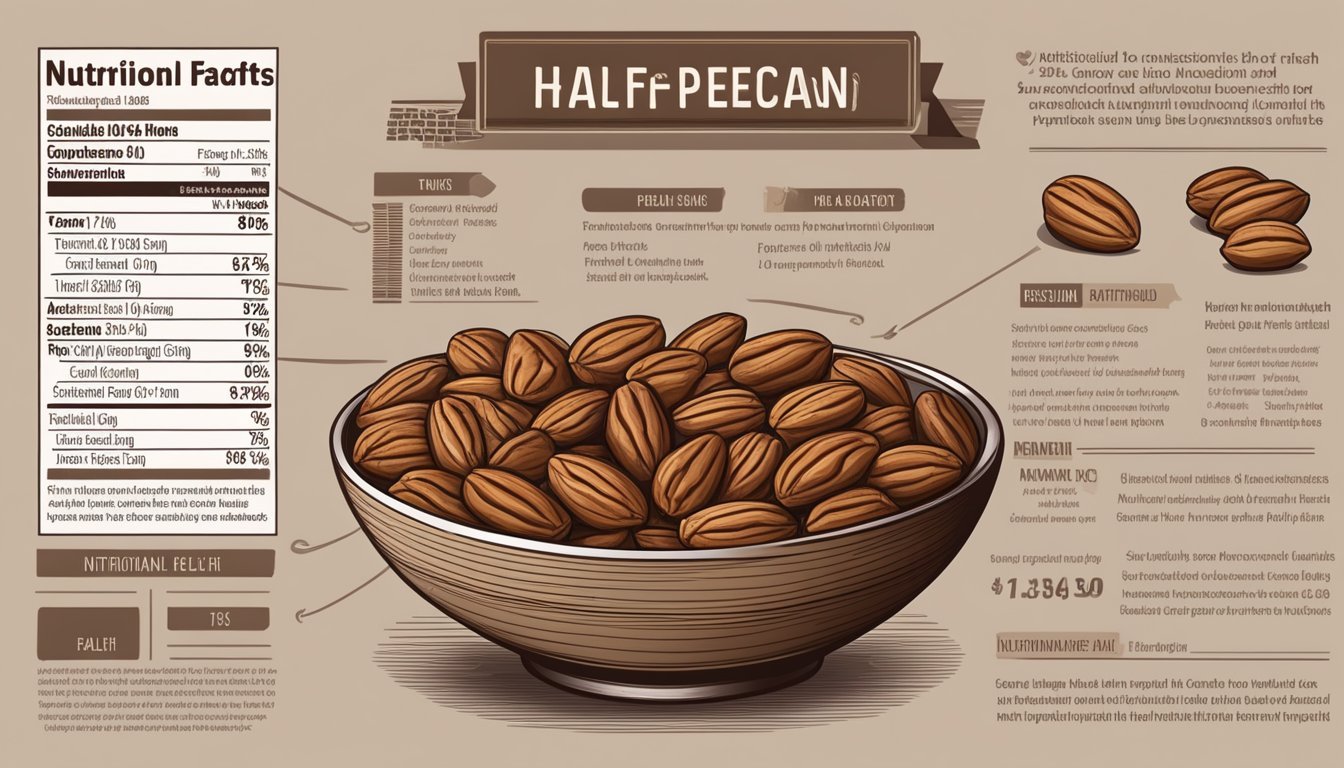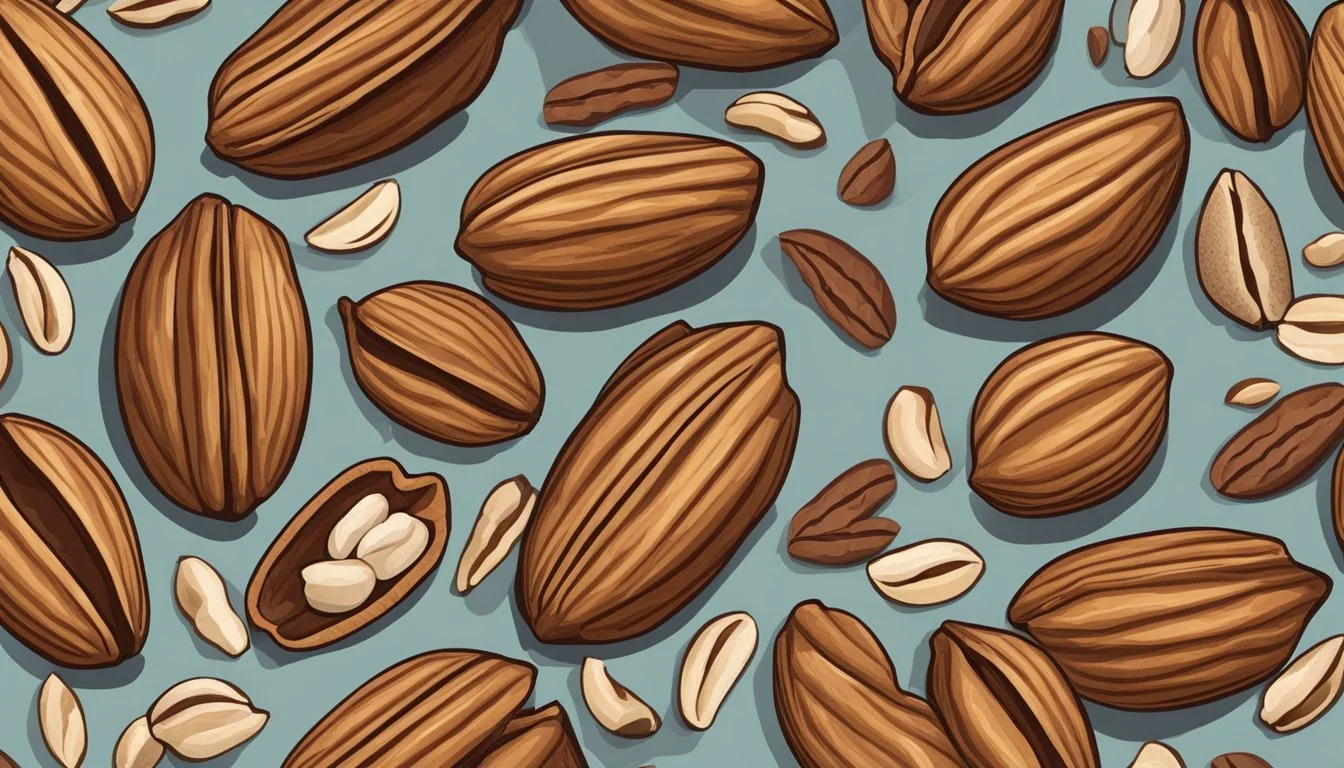How Long Do Pecan Halves Last?
Shelf Life and Storage Tips
Pecan halves are a popular and versatile nut cherished for their rich, buttery flavor and numerous health benefits. Like many other nuts, pecans have a finite shelf life that can be influenced by their storage conditions. Once harvested, pecan halves can be kept fresh for a considerable period when stored properly. The longevity of pecan halves is crucial for both consumers and producers, as it impacts taste, texture, and nutritional value.
Shelled pecan halves last up to six months when kept in a cool, dry place away from direct sunlight and heat sources. To further prolong their freshness, pecan halves can be refrigerated; this method extends their usability and preserves their flavor up to six months or longer. For those looking to preserve pecan halves for a more extended period, freezing is an excellent option. Frozen pecan halves can remain in good condition for up to two years, ensuring they retain their quality and are available for use in various culinary applications.
Pecan Storage Fundamentals
Storing pecans properly is critical for maintaining their freshness and extending their shelf life. Factors such as temperature, humidity, and container choice play pivotal roles.
Optimal Storage Conditions
Pecans should be kept in a cool, dry place, such as a pantry, to maintain their quality. The ideal storage temperature is at or below 40°F, which can often be achieved in a refrigerator. When storing pecans, one should use an airtight container to protect them from moisture and odors. For longer-term storage, pecans can be placed in the freezer where they can retain freshness for an extended period.
Pantry storage (Short-term): A cool pantry with temperatures that remain consistent is suitable. Pecans here can stay fresh for about nine to twelve months.
Refrigerator storage (Medium-term): This significantly extends pecans' freshness for up to nine months to two years.
Freezer storage (Long-term): Freezing pecans in sealed airtight containers can preserve their quality for up to two years.
Understanding Pecan Freshness
To assess the freshness of pecans, one must consider how the nuts were stored. Pecans that are stored improperly may not have the same shelf life as those kept under optimal conditions.
Shelled vs. Unshelled: Shelled pecans generally have a shorter shelf life than unshelled ones due to increased exposure to air and humidity.
Texture and Taste: Fresh pecans are firm and have a characteristic nutty flavor, while stale pecans may become soft or develop off-flavors.
Adhering to these fundamentals will help ensure pecans are enjoyed at their peak flavor and texture, supporting the pleasing culinary experiences they're known to provide.
Specific Storage Methods
When storing pecan halves, the method chosen is critical for maintaining their quality and shelf life. Whether for short-term or long-term storage, using the right containers and conditions is essential.
Refrigerating Pecans
Short-term storage: Pecans can be kept in the refrigerator for up to six months. For best results, they should be placed in an airtight container or a sealed plastic bag to protect them from moisture and odors. A glass jar can also be an excellent option for retaining freshness.
Freezing Pecans
For long-term storage, freezing pecans is the most effective method. It can dramatically extend their shelf life for up to two years. One should use a freezer bag to prevent freezer burn and retain flavor. Refrigerating before freezing pecans is unnecessary, but if pecans are taken out and defrosted, refreezing is generally not recommended to maintain their quality.
Pantry Storage
Pecans stored in a pantry should be in a cool, dry place away from direct sunlight. While pantry storage is suitable for a brief period, usually up to two months, an airtight container is still advisable to protect against pests and preserve the pecans' natural oils and flavors.
Signs of Spoilage
When pecan halves go bad, they tend to exhibit certain tell-tale signs, including changes in scent and appearance. A keen observation of the pecans' smell and look is essential in determining their freshness and edibility.
Identifying Rancidity
Rancidification is a common form of spoilage in pecan halves. They may develop a:
Distinctive rancid smell: An odor similar to paint or nail polish indicates the fats within the pecans have oxidized.
Bitter or sour taste: Sampling a small piece can reveal rancidity, evidenced by an unmistakably harsh, sour, or bitter flavor.
Spotting Mold and Mildew
Pecan halves may also become compromised by the growth of mold or mildew, particularly in conditions of excess moisture. Indicators of such spoilage include:
Visible mold spots: Spots may range in color, with white, green, or black being quite common.
Texture changes: Pecans may feel damp or exhibit a slimy texture.
Discoloration: Any significant deviations in color can signal spoilage, especially if accompanied by an off smell.
Utilizing Stored Pecans
Stored pecans can be a delightful addition to various dishes, from baked goods and salads to other recipes. The key to maximizing their use is understanding how to incorporate them and how to refresh them for optimal taste and texture.
Incorporating Pecans in Recipes
Pecans are a versatile ingredient that enhances the flavor and texture of numerous recipes. In baking, she can add them to muffins, breads, and cookies for a rich, nutty crunch. They're not only a staple in sweet dishes like pecan pies, but also in savory ones; chefs often sprinkle toasted pecans over salads to introduce a satisfying crunch.
They should consider the following uses:
Baked goods: Mix into batter or dough for muffins, cookies, and bread.
Salads: Top green or fruit salads with pecans for added richness.
Other recipes: Incorporate into stuffings or as a crust for meats and fish.
Refreshing Pecans Before Use
If stored pecans have lost some of their vibrancy, they can easily refresh them before use. To rejuvenate the nuts and bring back some of the natural oils, one might toast them. Here are the steps they could follow:
Preheat the oven to 350°F (175°C).
Spread the pecans in a single layer on a baking sheet.
Toast in the oven for 5–10 minutes, checking frequently to prevent burning.
This process can restore the pecans' inherent flavors, making them taste fresher. One should let them cool before adding them to dishes, ensuring the best possible flavor enhancement.
Best Practices for Pecan Storage
When storing pecan halves, it's essential to use proper containers and techniques to maintain their freshness and extend shelf life.
Airtight Containers vs. Bags
Airtight containers, such as glass jars, plastic containers, or metal tins, are highly effective for pecan storage. They should have tight-fitting lids to seal out moisture and contaminants. Resealable plastic bags can also be used, especially for freezing, but one must ensure they are properly sealed and as much air as possible is removed to prevent freezer burn.
Preventing Pecan Spoilage
To prevent pecan halves from spoiling, they should be kept in a cool, dry place with relative humidity maintained around 40-50%. Pecans should be kept away from moisture sources — like sinks or dishwashers — and other strong-smelling foods, which can cause them to absorb unwanted odors.
Maximizing Pecan Shelf Life
Unshelled pecan halves can last up to six months when stored in a refrigerator and up to two years if frozen. Proper storage involves placing pecans in an airtight container or resealable plastic bag to prevent moisture from shortening their shelf life. Always check for the best-by date when purchasing and try to consume them within this period for optimal quality.
Health Benefits and Nutritional Information
Pecans are not only flavorful but also packed with nutrients that offer significant health benefits. Their nutrient-rich content supports overall health, particularly in regard to the heart and metabolism.
Nutritional Content of Pecans
Pecans are an excellent source of various vitamins, minerals, and dietary fiber. They particularly stand out for their healthy unsaturated fats, which are beneficial for heart health. The table below outlines the specific nutritional content of pecans:
Nutrient Amount in 1 oz of Pecans Dietary Fiber Approx. 2.7 grams Iron Approx. 0.7 mg Magnesium Approx. 34 mg Plant-based oils Mostly unsaturated fats
The dietary fiber in pecans helps with digestive health and can contribute to a feeling of fullness, which may assist with weight management. Iron is vital for transporting oxygen in the blood, while magnesium plays a role in over 300 biochemical reactions in the body, including energy production and muscle function.
Pecans as a Healthy Snack
As a snack, pecans offer a rich supply of healthy unsaturated fats, which are known to contribute positively to heart health and cholesterol levels. The plant-based oils found in pecans include oleic acid, a monounsaturated fat linked to reducing inflammation. Pecans are also relatively low in carbohydrates and high in fiber, making them a satisfying option that can help to curb hunger and provide sustained energy.
Understanding Pecan Varieties
When discussing pecan halves, it’s important to consider whether they are shelled or unshelled, as this affects their longevity and quality.
Shelled vs. Unshelled Pecans
Shelled pecans are those that have had their hard outer shells removed, exposing the nutmeat inside. When stored properly, shelled pecans can maintain their quality for up to six months in a pantry. However, when placed in the refrigerator, their shelf life extends significantly, making it a preferred method of storage to preserve flavor and freshness.
On the other hand, unshelled pecans (also known as in-shell pecans) tend to have a longer shelf life due to the protection offered by their intact outer shell. These can last for anywhere from nine to twelve months in a pantry setting without significant loss of quality.
In-Shell Pecans and Their Lifespan
In-shell pecans, when kept in a freezer, can remain at peak quality for up to four years. It's vital to ensure they are placed in an airtight container or freezer bag to guard against freezer burn and moisture infiltration. Their robust shelf life in frozen conditions is attributed to the hard outer shell which inherently protects the nutmeat from oxidation and other spoilage processes.


